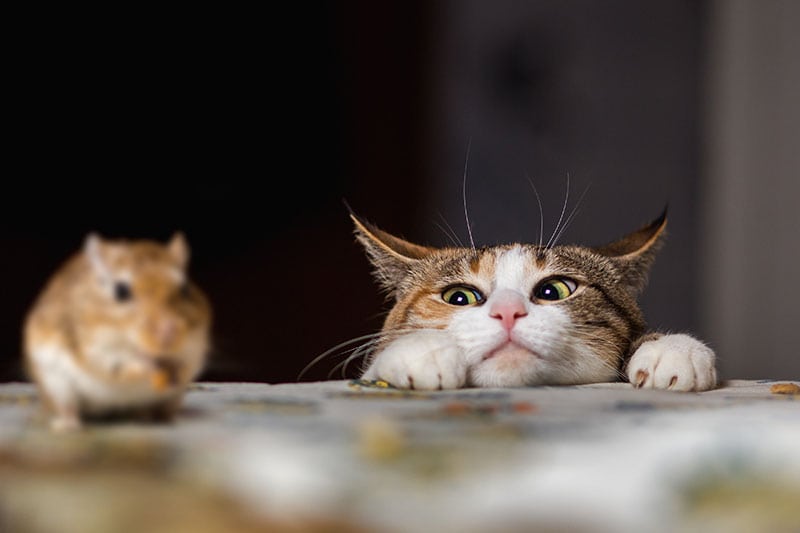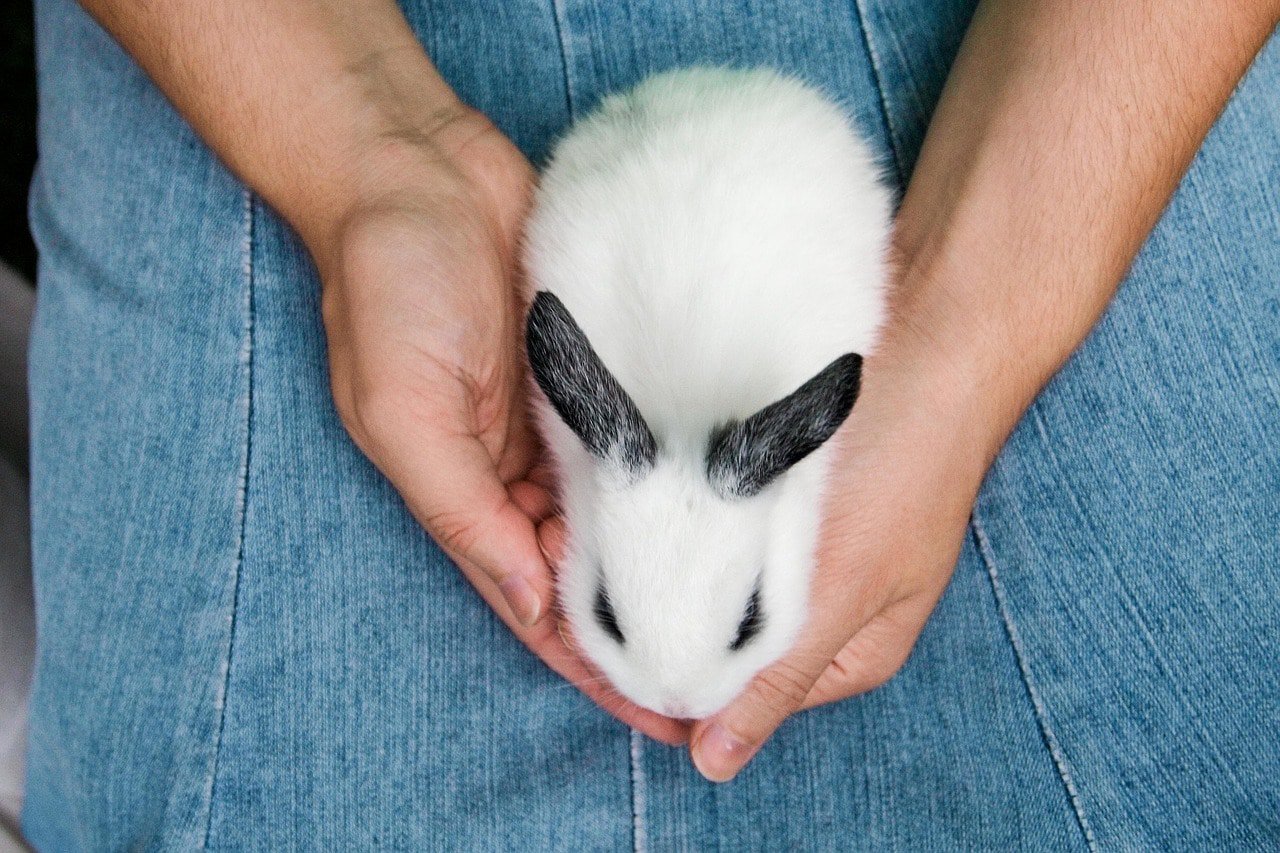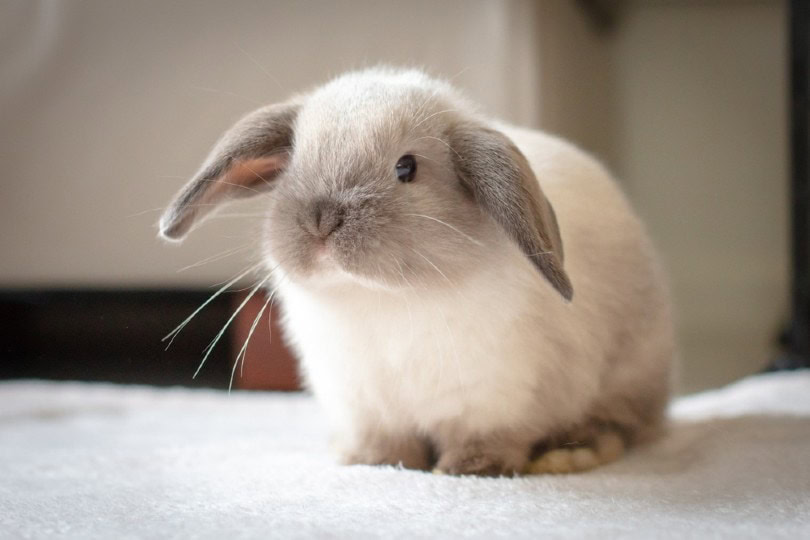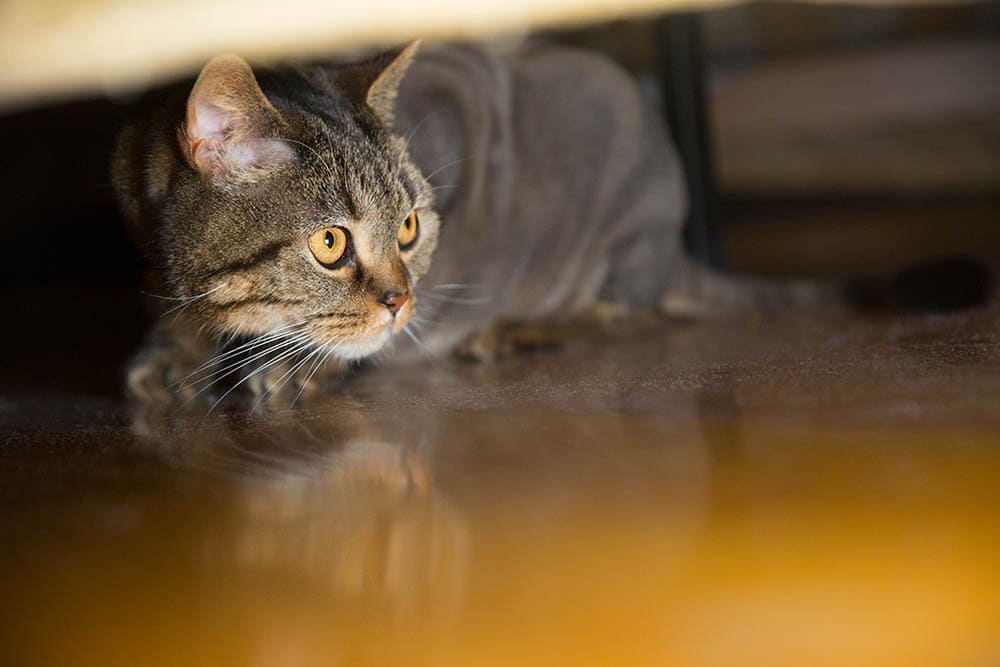VET APPROVED

The information is current and up-to-date in accordance with the latest veterinarian research.
Learn more »Click to Skip Ahead
As much as cat owners might probably know the answer to this question based on experience, many people still don’t know how cats hunt and kill mice—or even why they do it despite being well-fed. This article will further discuss cat hunting behavior as well as their hunting techniques. Keep reading to learn more.

The 3 Main Techniques Cats Use to Hunt and Kill Mice
There are several hunting techniques that cats utilize while hunting. However, the techniques may vary depending on their prey.
1. Stalk and Pounce
This is a commonly observed technique in cats. But don’t think it’s an easy feat; it takes a lot of patience and skills. Once the cat gets the prey in sight, they get closer to the ground.
If, by any chance, the prey tries to run, the cat will advance while adjusting their speed to that of the prey. Cats can simply freeze in position with their paws out in midair to avoid detection. When the mouse moves, the cat squats and prepares for take-off.
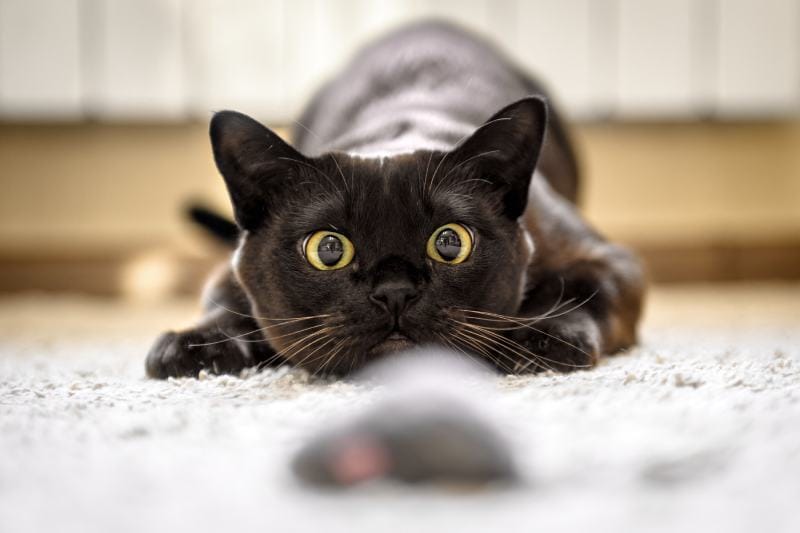
2. Fishing
Sure, fishing is a hard skill to master, even for humans. It requires a lot of patience and the ability to navigate water. So, as cats hunts, they will try to avert their reflection away from water as they wait for their prey. As soon as the cat is ready, they can quickly hook their paw into the water and pry the prey out.
But how does this apply to mice? Cats sometimes hunt mice from their hideout holes. They will sit near the hole, remaining still. They will watch for any shadows or movement coming from the hole. Once the mouse is visible, the cat will use their paw like a hook to snag the prey.
3. Ambush
The ambush technique is slightly different from the stalk and pounce method. Stalking often requires several stops before the kill. The ambush happens in one strike. But it still takes practice and skill. The cat will find their prey and remain motionless. Once the cat has a clear shot of the mouse, they will strike.
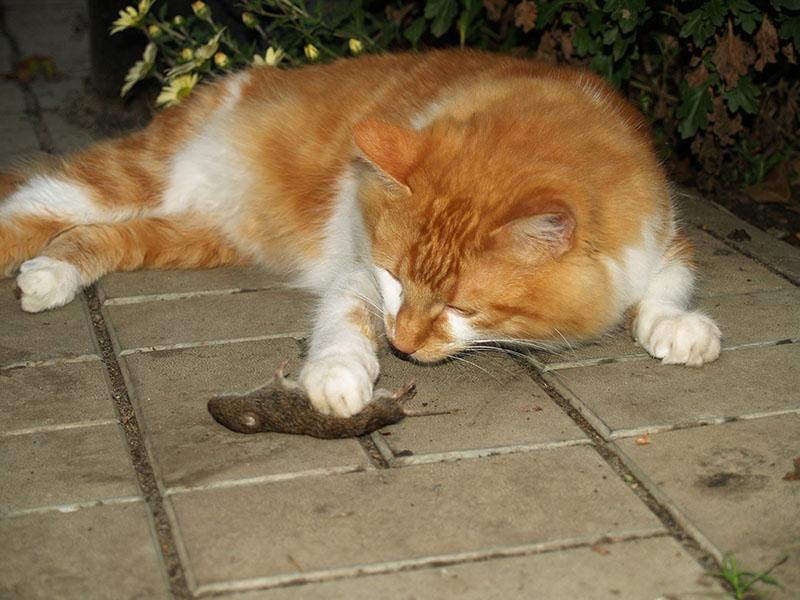

Cat Hunting Behavior
Domestic cats are well known for their stealthy approach while hunting mice. They will usually keep still or as silent as possible, and this is accompanied with persistence and patience.
Cats always utilize their keen sense of sight, smell, and hearing while hunting. Once they select a good spot (usually next to a mouse nest), they will use the available cover and wait for the mouse to appear. The smallest movement or slight rustle will be detected by the cat, whereupon they will stalk or freeze.
If the cat believes that the prey will move toward them, they will pause and wait. Sure, the prey might not innocently move toward the cat, but the cat will make short and quick advances toward the prey without barely making a sound. The cat will also crouch low and tense their body.
Usually, before a cat makes its final pounce, they will sway their head from side to side to get a 3D angle of the prey, thus judging the exact distance for an accurate pounce. For mice, the final pounce toward mice is a one-chance strike.
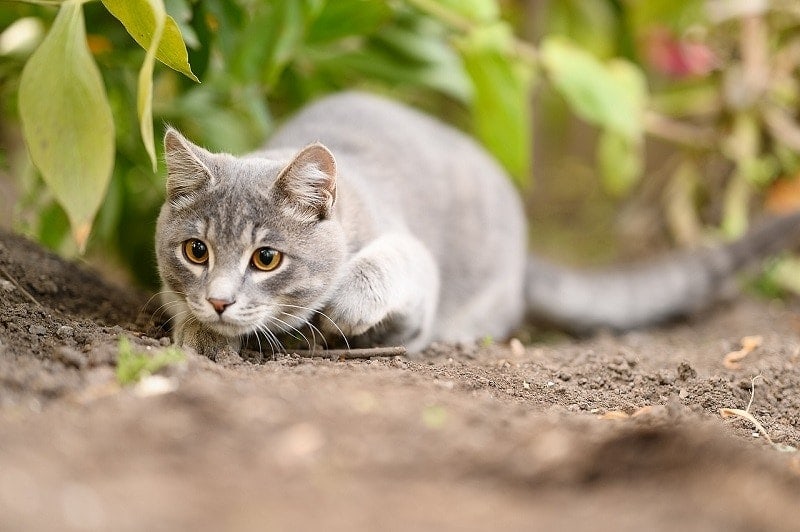
Why Do Domestic Cats Hunt?
Granted, cats hunt for natural reasons. However, many people are still puzzled as to why well-fed domesticated cats still feel the urge to hunt. Several research studies have been done to try and explain the possible reasons why cats do so.
Below are the most plausible reasons:
- It’s fun: We all need a purpose in life and something to keep ourselves busy and entertained. Pet cats do not need to hunt for their food, but this does not take away from the instinct and entertainment opportunity that a hunt represents.
- They May Want an Animal Trophy: Most feline enthusiasts and opinion leaders believe cats sometimes hunt birds and small rodents to present them as trophies to their owners. It may sound far-fetched, but it’s actually true, even though the motivation behind such behavior is still a mystery.
- Your Cat May Be Craving More Meat: Cats are socially and physically adapted to an all-meat diet. However, these felines are obligate carnivores. This simply means that they are not able to survive solely on a vegetarian diet since they lack specific nutrients present only in animal-derived proteins like Taurine.
Since most domesticated cats are fed exclusively dry food diets, they often complement their diets with a carnivorous meal. While their nutritional requirements can be met in branded foods, it’s not the same. This is perhaps why cats hunt the prey of their choice to complement their diet. After all, hundreds of years of evolution while consuming a moisture-rich animal-based diet prevail over the couple hundred years they have been fed on kibble.
Are There Any Risk For Cats Hunting Mice?
While we have to accept that keeping our homes mouse-free is an appreciated service and the very reason cats and humans started to coexist, the reality is that mice are not that safe for your domestic cat to consume. Wild mice can carry and transmit parasites, such as toxoplasmosis, roundworms, and tapeworms, bacteria, such as Leptospira and Salmonella, and even viral agents like Hantavirus. Besides that, cats could get exposure to secondary poisoning from rodenticides or get injured by the mice’s tiny bones.

In Conclusion
A typical cat will snap a mouse’s neck to paralyze it. The mouse eventually dies from a heart attack, injuries, or internal bleeding. Usually, if a cat catches a mouse, they may play with it until it dies from injuries sustained.
Whichever the case, there isn’t much that you can do when a cat is hunting. Cats are ruthless killers when they need to supplement their diet with meat. But cats can choose to kill and present you with a gift of dead prey. If they do, ensure that you properly dispose of it and ensure you clean and disinfect the area properly.
Featured Image Credit: Sergey Zaykov, Shutterstock
